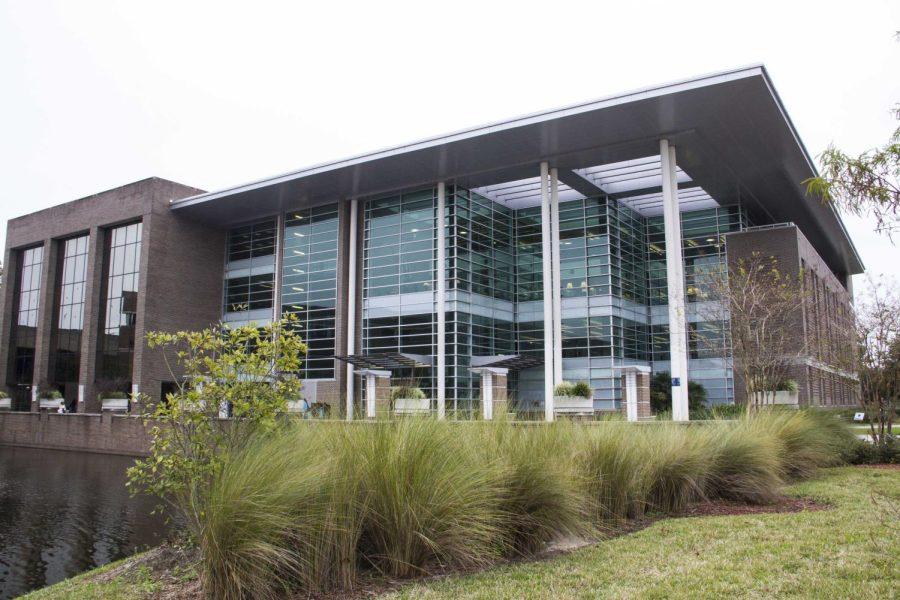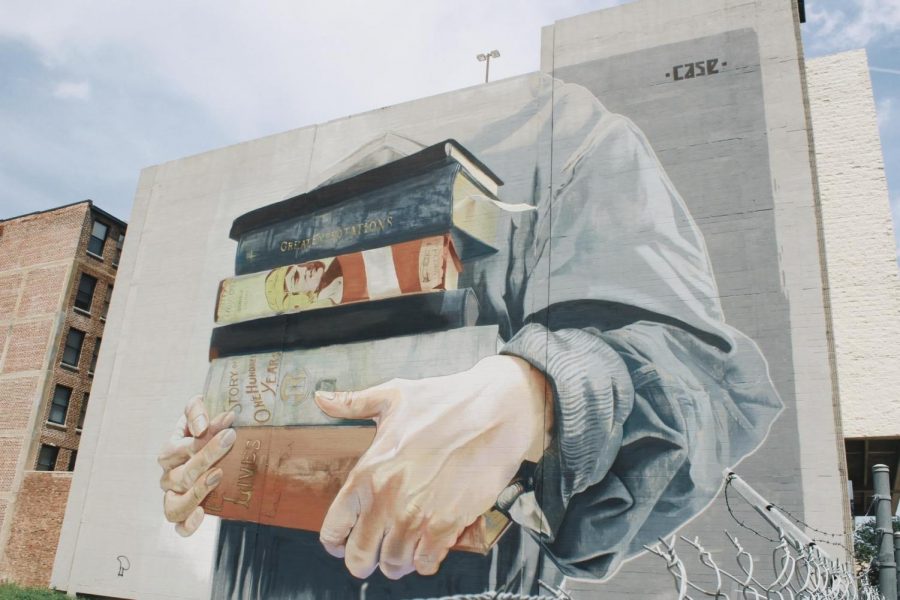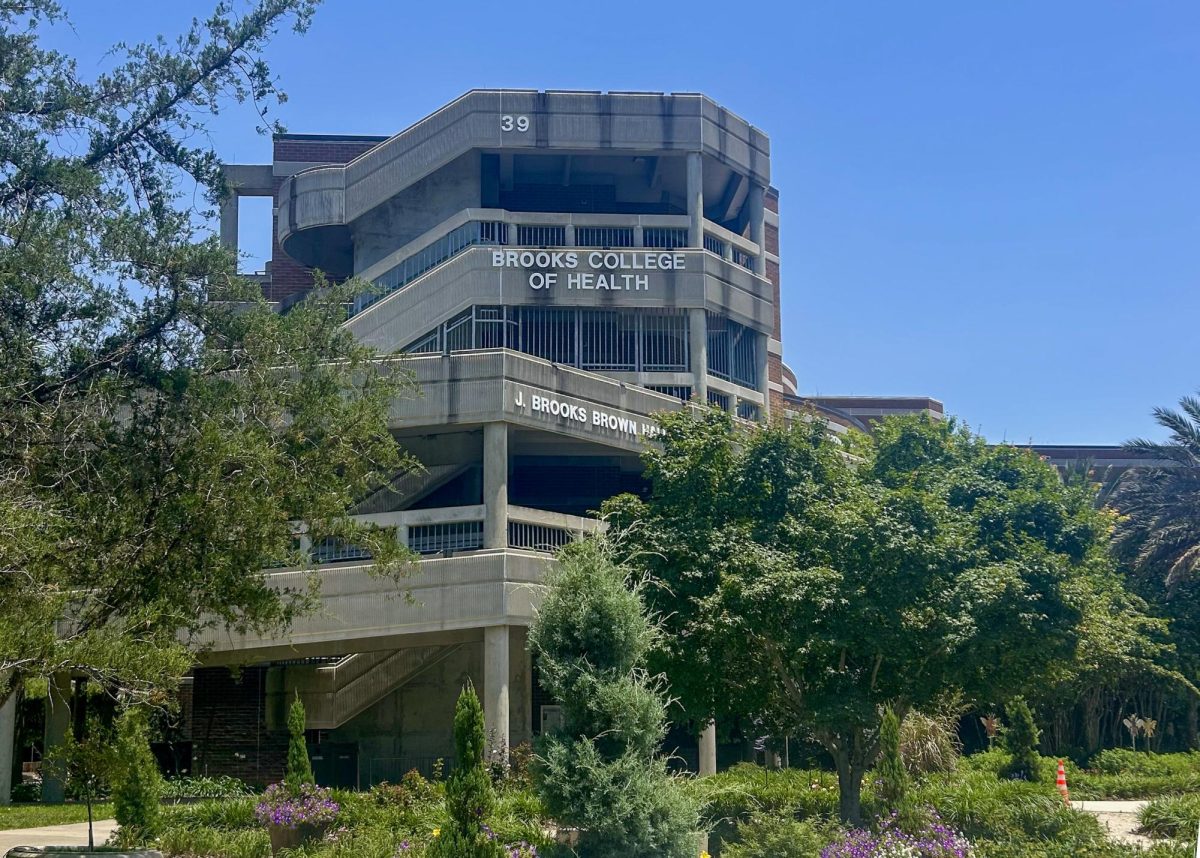Are you a rule breaker? Have you ever wanted to be? Well, the University of North Florida Library might be the place to go to fulfill that rebel desire (and don’t worry- you won’t even get in trouble for it).
Sunday marked the start of Banned Books Week at UNF, a week to read and celebrate the written words that have sparked controversy around the nation. While it may feel scandalous to read something others don’t want you to, the week is about more than not doing what you’re told. To UNF Librarian Maria Atilano, this week is about fighting censorship.
“Libraries are all about the freedom of information, and if that’s being censored, then the world needs to know about it,” Atilano said.
The UNF Library’s Banned Books Week aims to promote some of the top controversial books of 2021. Often featuring topics of race and LGBTQ+ issues, these books have been challenged and banned in school districts and public libraries, making access to them difficult or impossible for many children.
The book-banning trend is on the rise in the United States, according to Pen America. From July 2021 to March 2022, Pen America indexed over 2,500 books that were banned in classrooms or pending investigation to be banned, seeing Texas, Pennsylvania and Florida as the top three states for book bannings and challenges.

The distinction between a ban and a challenge in the conversation about these books is very important, according to UNF English professor Russell Turney, who teaches a class called “Dangerous Books.”
“What we call banning is really an outcome, a possible outcome, of a book challenge,” Turney explained.
When a book is challenged, someone brings the book to the attention of a school district, county or other authority and attempts to restrict access to the book. Turney explained that there are three outcomes for a challenged book.
The book could be relocated: instead of having the text available on the general library shelves, the book could be kept behind a desk where you have to ask a librarian for the book. The book could be restricted, so the book may only be available to certain age groups, or children may need parental permission to access the book altogether.
“The last one is removal,” Turney said, explaining that this is the closest outcome to what people call a “ban.”
“If you just kind of define it strictly as removal of books completely, then you miss what is part of the larger issue, which is text, information, textbooks, voices, stories, being restricted, being kind of displaced, marginalized, both physically and philosophically,” Turney said.
The stories that become “marginalized” through book challenges often discuss the issues of marginalized people. The top three most challenged books of 2021 were contested for their LGBTQ+ content, with the most challenged book being “Gender Queer,” according to the American Library Association.
“Sometimes it’s also racially motivated,” Atilano said. “So books having to do with systematic racism, current political issues, with the CRT, Critical Race Theory.”
Both Atilano and Turney explained that current political issues play a role in why books become challenged. In Florida, the “Don’t Say Gay” bill and legislation restricting how teachers can discuss topics of race and gender have contributed to an uptick in restrictions. For example, Florida rejected 54 math textbooks in April, finding them “impermissible” for K-12 students because they contained “prohibited topics” such as Critical Race Theory and themes of Social Emotional Learning (SEL).
Politics are not the only reason for literary censorship. Some censorship is self-imposed. Take Dr. Seuss’ 1937 book, “To Think I Saw it on Mulberry Street,” for example. The book featured depictions of racial stereotypes, leading Seuss Enterprises to cease production of the book in 2021.
Other children’s books like The Giving Tree have been challenged over concerns they send anti-environmental messages and teach children about toxic relationships, Turney explained.
The Guinness Book of World Records “best selling book of all time” is another one that Turney said was among the most banned books in American history. What is this popular and controversial book? It’s the Christian Bible.

“There’s an argument that American History is also the history of banning books,” Turney said.
Within a year of the Mayflower arriving in the “New World,” Turney explained that the first book was banned. While literature and politics have changed since that time, reasons for challenging books tend to stay relatively constant.
Writing that challenges social norms, conventions or hierarchies, racist words deemed inappropriate for readers, explicit sexual content, and graphic details of violence and suffering are some common reasons books get challenged. “To Kill a Mockingbird” has been challenged for containing the N-word and “The Diary of Anne Frank” for “inappropriate” themes surrounding the Holocaust.
“Do you pull them? Is that, to some degree, trying to ignore our history? You know, we’re going to pretend like this didn’t exist,” Turney said.
Turney explained that in his Dangerous Books class, his students discuss how these books- even the ones that perpetuate ideas many Americans now consider harmful- can be used to teach readers. Some of his students are completely against certain books, and some believe these books should go unrestricted. Turney described reading these books as opening the door for a teachable moment. Sparking discussion over why some of these books existed and the historical context in which they were written can make people acknowledge uncomfortable truths.
“Some people don’t want their children reading it, but that also means they don’t want anybody reading it,” Atilano said, describing why she believes parents challenge books.
“We are seeing an unprecedented wave right now. I mean, there’s nothing really comparable to it right now in terms of book challenges,” Turney said.
Atilano described the “huge uptick” in the number of challenged and banned books as being one of the reasons it’s important to celebrate Banned Books Week. To promote the uncensored sharing of ideas, the UNF Library will display some of the most controversial books from last year, allowing students to come and read them.
This week, the Library will let students have “a blind date with a book,” where they can check out a mysterious book and unwrap an uncensored surprise. They also have some books featured online and in a virtual reality display.
“We just want everyone to read whatever they want,” Atilano said.
___
For more information or news tips, or if you see an error in this story or have any compliments or concerns, contact editor@unfspinnaker.com.
















